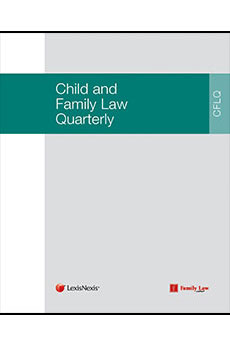- News & Comment
-
Online Shop
Online Services
Looseleafs
Law Reports
Books and eBooks
-
CPD & Events
Webinars
- Authors
- About Family Law
- Contact

Nurit Zubery, Mediator, Beyond Conflict Mediation, New Zealand
Keywords: Fathers – Divorce – Family – Mediation – Dispute – Gender
This New Zealand study aims to examine the experiences of fathers in family mediation in an open, non-directive way. Qualitative, semi-structured interviews were conducted with fathers who attended family mediation. The interviews revealed a highly challenging post separation period for fathers as they battle severe grief combined with confusing societal messages about fatherhood. The devaluation of fatherhood by mothers, mediators and often fathers themselves surfaced as a pervasive theme. The most prominent experience that transpired in the interviews was gender-based bias and a strong feeling of powerlessness as fathers perceive mothers as holding absolute power in the mediation. For most fathers, the full potential of mediation has not been fulfilled due to anger and frustration created by these difficulties. Implications for mediators include the need to be aware of the fragile state of fathers and to show respect for the different quality of fatherhood. Mediators should use techniques that maximise the potential for conflict resolution as opposed to settlement and use reflective practice and supervision, especially around gender-bias and gender-power issues. Increasing engagement with fathers will enable mediators to unlock the full potential of family mediation and enhance the wellbeing of children through enabling a meaningful relationship with fathers.
This article has been accepted for publication in Child and Family Law Quarterly in Issue 3, Vol 34, Year 2022.






